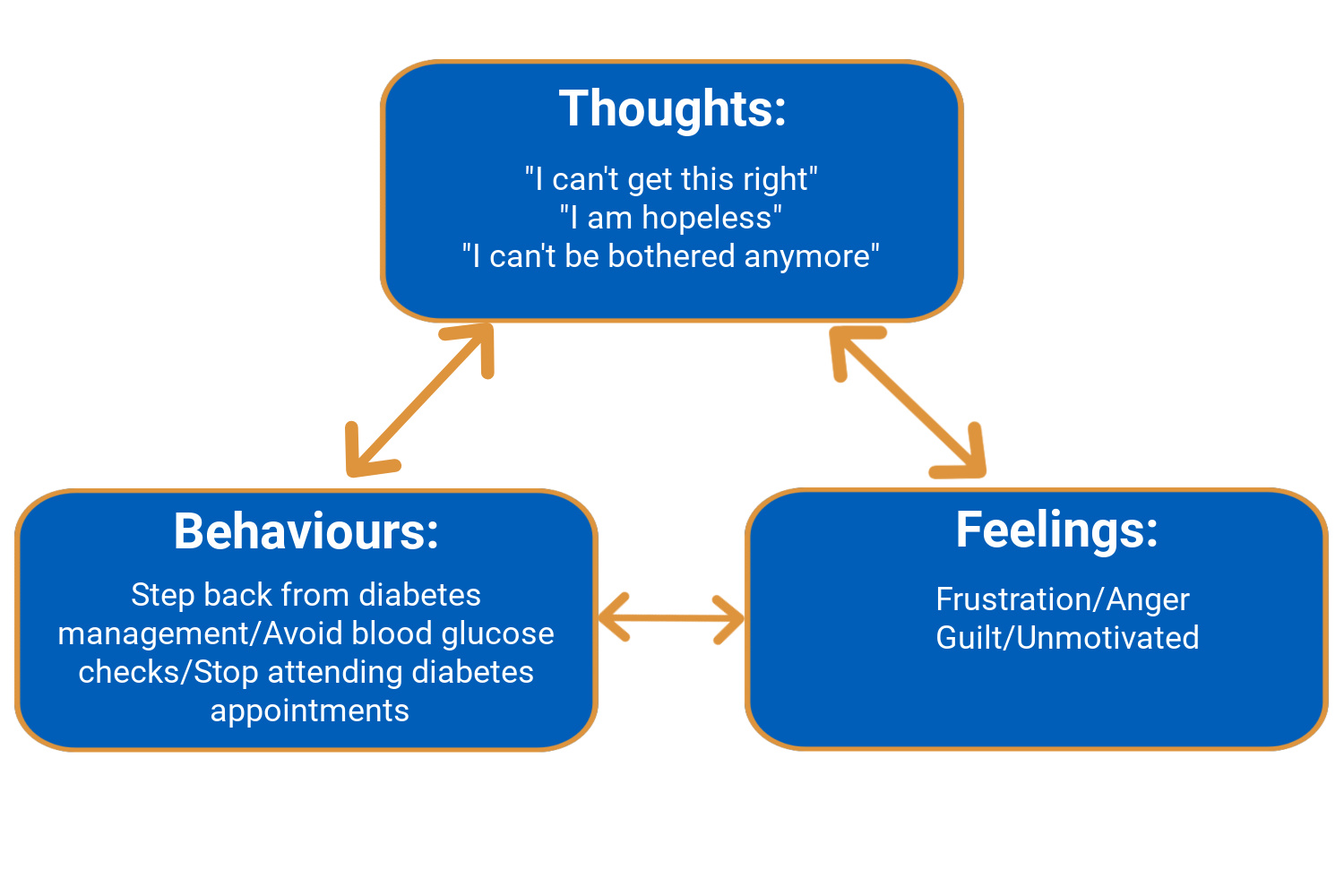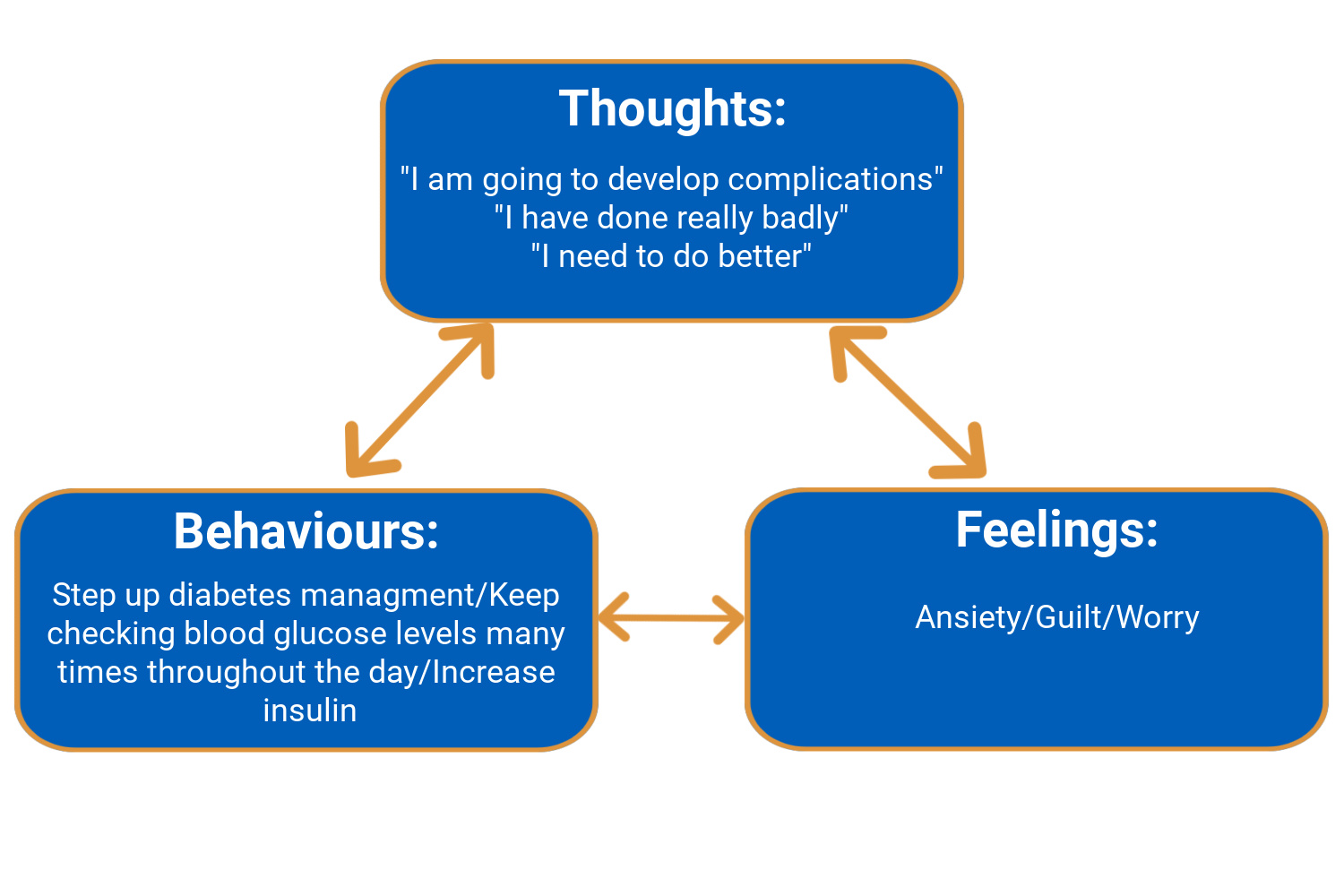
Common responses to feelings and thoughts when living with diabetes
Sometimes, these difficult thoughts and feelings can “hook” us – they can grab us and directly impact how we behave. Our actions then influence our thoughts and feelings further so that we can end up in a cycle.

Some situations can cause us to be hooked more easily – and what is going on in our day or life generally can also mean we are more or less likely to get hooked. For example, difficult thoughts and feelings might hook us more when we are tired or stressed or unwell.
Let’s think of some situations that people living with diabetes might face, and see how feelings, thoughts, and behaviours all link up to create a cycle – Click on each tab to see if you can notice some black and white thinking in these examples!
People might do many other things when they become hooked by difficult thoughts and feelings about diabetes. Some things other people have described are:
- run glucose high
- hide away to check glucose
- omit insulin injections
- avoid travelling abroad
- do nothing
- eat more, miss insulin
- check glucose lots
- avoid going out alone
- not exercise / exercise excessively
- disengage from the diabetes team
Behaviours in response to thoughts and feelings about diabetes can often be grouped into two categories:

Like an ostrich, keeping your head in the sand, you might reduce or stop diabetes self-care (e.g., stop checking glucose levels, skip medical appointments, avoid carb counting)

Like carrying a magnifying glass around at all times, you might be extra cautious and preoccupied with your diabetes and self-care (e.g., checking glucose constantly throughout the day, striving for the perfect time in range, only eating foods you already know the carb content for)
If relied upon, both of these responses can cause difficulties and make thoughts and feelings about diabetes harder in the long-term.
It can be extremely helpful to notice your own cycles of feelings, thoughts, and behaviours, because then you have a chance to make a change if you want to. Click on the links below for some worksheets to help you. Read about and share with others here some patterns you might have noticed about how your thoughts and feelings about diabetes have affected your diabetes management.
Have you noticed periods of avoiding diabetes management because of how you felt, or maybe episodes of overdoing it?
Go to ‘Emotional wellbeing and diabetes: thoughts, feelings and behaviours’ or choose another section.



Read and understood
It’s hard to acknowledge how you feel initially also the impact of family members around them and making sure they are well informed
After 25 years I’ve learnt to deal with this